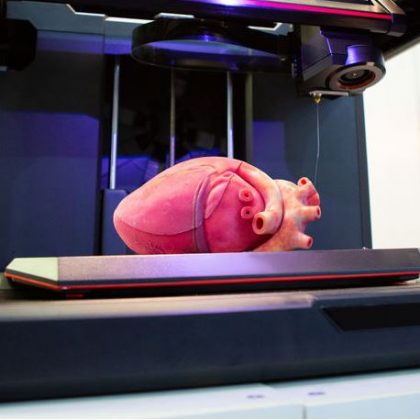2016 MRS Communications Lecture
The MRS Communications Lecture recognizes excellence in the field of materials research through work published in MRS Communications. It is intended to honor the authors of an outstanding paper published in the journal during the award year.
This year’s recipient is David C. Martin of the University of Delaware, author of ‘Molecular design, synthesis and characterization of conjugated polymers for interfacing electronic biomedical devices with living tissue‘, published April 2015.
Access Martin’s without charge
The following video is based on David C. Martin’s MRS Communications paper, and highlights conjugated polymers and how they work in living tissue.
In this MRS TV interview from the 2016 MRS Spring Meeting, David C. Martin discusses his MRS Communications Lecture.
Molecular design, synthesis and characterization of conjugated polymers for interfacing electronic biomedical devices with living tissue
Conjugated polymers are being considered for use at the interface between hard inorganic metallic and semiconducting electrodes and soft biological tissues. These organic materials have properties that are intermediate to these two extremes, and their chemistry, structure, and performance can be precisely manipulated over a large range. Examples of current interest included copolymers of poly(3,4-ethylene dioxythiophene) and poly(3,4-propylene dioxythiophene). Martin’s lecture is based on his paper of the same name which reviews past efforts, recent activities, and future possibilities in this rapidly expanding area of materials research and technology.
David C. Martin’s Biography
David C. Martin, Karl W. and Renate Böer Professor and chair of Materials Science and Engineering at the University of Delaware, focuses his research on organic molecular semiconductors, organic conductive polymer films, low impedance biomimetic conductive polymer coatings and bioactive hydrogel coatings for microelectrodes on biomedical devices and biosensors, electrically conductive polymer nanotubes, oriented electrospun nanofibers, multi-phasic functionalized polymer nanoparticles and molecular simulations of polymer defects and crystal structure. Martin earned his Ph.D. in polymer science and engineering from the University of Massachusetts Amherst. The Bӧer Chair honors Karl W. Bӧer, Distinguished Professor Emeritus of Physics and Solar Energy, a pioneer in the fields of solar cells, solar energy systems and solid-state physics.





